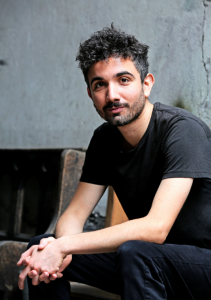Pablo Manzi on writing A Fight Against... (Una Lucha Contra...)

When I started writing this play, I was trying to talk about a mark, a trace of something in day-to-day life that I couldn’t quite put into words. I felt that this mark might be a sign of something but I couldn’t name what that was. After writing the play, I would describe it as a kind of bearing witness to how the idea of community has been erased from our daily lives. This isn’t something we experience passively: paradoxically, it is we ourselves who have carried out this erasure, who have enacted this erosion of communal living. In such a context, danger, hostility and violence inevitably begin to take centre stage in our day-to-day experience.
At the same time, however, I wonder if what lies behind this landscape of hostility might not also be an expression of resistance to the loneliness and isolation that many people feel in their daily lives. Since so many of the large spaces where people gather in great numbers are often considered to be dangerous and violent, I began to wonder if that violence might be a kind of cover for our yearning to be with other people, as if all the communal spaces that for years have been thought of as frenzied or aggressive (shopping malls, night clubs, fast-food outlets, stadiums) might be spaces where, imperceptibly, people are ‘resisting’. I couldn’t say for sure that this was true, of course, but the play allowed me to ask the question. Curiously, many of these spaces would appear to be the very opposite of any original idea of community. But perhaps they are also a sign of something, a kind of pretext for feeling the closeness of others, a strange form of resistance against something lurking beneath the surface: the end of community life.
That the play should be shown again online no doubt reframes how we might think about this. Since it was written, a series of events have had an inescapable effect on our societies: the pandemic and, in the case of Chile, the ‘estallido social’ or social uprising, a social event in the most profound sense of the term, and one that left the daily lives of many people genuinely ruptured. I think both of these events raised uncomfortable, difficult questions about the meaning of community. It seems to me no coincidence that the discussions and conversations I had with director Sam Pritchard about the play shifted as they unfolded.
Finally, streaming the play as a film is also a way for the generosity and deep creative collaboration that exists in a place like the Royal Court to continue. I’m very grateful to each and every one of the people with whom I worked on this project. Reviving the play like this is a way of keeping the wonderful experience of that process alive.
Pablo Manzi, November 2022
Translated by William Gregory
